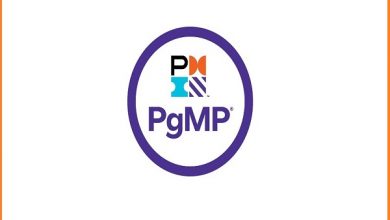
Many people don’t even understand where to start when one test after another, last-minute preparation or revision becomes difficult. But if you want, you can improve your memory, as well as deep attention and improve your mood. Choose a study technique that is effective, and have a positive attitude, Some Important Tips for Preparation before the Exam. So that you can complete the final exam preparation or revision phase more effectively.
The following tips will help you to sharpen your talents and improve your teaching.
[highlight color=”yellow”]10 Ways to Prepare for Exams[/highlight]
[tie_list type=”checklist”]
- Have a positive attitude.
- Begin early and space out your studying.
- Have specific goals for each study session.
- Organize your study materials before you start the session.
- Create your own study materials.
- Use Technology.
- Take advantage of Campus Resources.
- Eat Healthily.
[/tie_list]
-
Mandatory breakfast, with nutritious meals
Our body needs the energy to function normally. And the ability to concentrate and concentrate in the brain comes from an adequate, continuous supply of energy that comes in the form of glucose.
Studies have shown that students who ate breakfast properly did better on the test. Because it has become easier for them to pay attention and remember different information.
-
Start studying in advance
Preparations should start before the exam day is approaching which will keep you calm. Try to read in the morning because at that time the brain is fresh and relaxed. Revision is never the right thing to do for the next day because you may feel more tired in the afternoon or afternoon. There are many of us who start studying after the exam starts. But this is not true at all. Because if you put it down earlier, the pressure is less during the test.
-
Decide what to focus on
Oral examination? Practical? Or subject-based? Different types of attitudes work in different types of testing. So you have to understand the type of test and the amount of syllabus or syllabus to be read.
-
Plan adoption:
This may seem time-consuming but a complete revision plan will actually save you time. You don’t have to waste a minute thinking about how much you will revise every day. It is also a way to check the progress of your lessons.
-
“Break” might be your best friend
Reading a subject for one hour for 10 days is more beneficial than reading for 10 hours a day. It takes time to keep information in memory but intermittent strategies have proven to be the most effective. In this method, the rule is to memorize the text in the middle of each revision and to take time to re-assimilate it.
-
Verify yourself
“Self-verification” is certainly one of the most effective ways to remember data, say, psychologists and neuroscientists.
-
Become a teacher yourself
So you revised, verified yourself then what? Now go and start teaching your acquired knowledge to someone else, of course.
This is a well-known strategy. It stimulates your memory and helps you remember.
-
Be smart and hide the phone
The phone is a necessity, but not the time to study. The bait of social media and chat applications will confuse you. It has been seen that the more you are busy with the phone, the lower your number or grade will be.
-
Less music, more silence
Students who study in a quiet and secluded environment have a better memory than those who study while listening to music.
Studies have shown that. So the environment of the lesson room is also important.
-
Regular breaks, open-air, and exercise
Effective revision does not mean continuous fall: occasional breaks make the brain more functional. Your body and mind are inextricably linked. Exercise keeps the blood flowing, provides more oxygen to the brain, and improves efficiency.
-
Sleep
You must get a good night’s sleep the night before the test, but only during the whole revision period. Once you go to bed at a certain time, you can wake up at a certain time in the morning.
-
Stay calm and positive
You now have these tips from top psychologists, neuroscientists, and educators that will help you gain better knowledge.
So make use of it. At least now you know better than the previous generation of students how to prepare for your exams better. Some Important Tips for Preparation before the Exam And you know how to improve your memory, mood, and concentration. So try to stay calm and positive throughout the whole process and even if you ever have a bad time.
Lastly, don’t forget to reward yourself when the exam is over.




